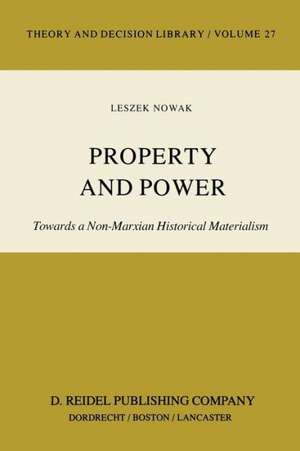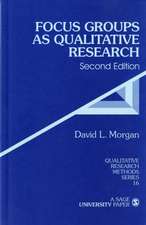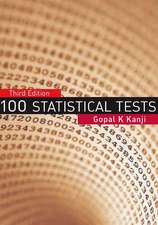Property and Power: Towards a Non-Marxian Historical Materialism: Theory and Decision Library, cartea 27
Autor Lesz Nowaken Limba Engleză Paperback – 31 mai 1983
Din seria Theory and Decision Library
- 15%
 Preț: 599.61 lei
Preț: 599.61 lei - 15%
 Preț: 581.62 lei
Preț: 581.62 lei -
 Preț: 382.57 lei
Preț: 382.57 lei - 18%
 Preț: 1231.64 lei
Preț: 1231.64 lei - 18%
 Preț: 1223.89 lei
Preț: 1223.89 lei - 18%
 Preț: 943.43 lei
Preț: 943.43 lei - 15%
 Preț: 642.83 lei
Preț: 642.83 lei - 18%
 Preț: 950.33 lei
Preț: 950.33 lei - 18%
 Preț: 1234.94 lei
Preț: 1234.94 lei -
 Preț: 391.61 lei
Preț: 391.61 lei -
 Preț: 382.75 lei
Preț: 382.75 lei - 15%
 Preț: 643.16 lei
Preț: 643.16 lei - 15%
 Preț: 639.73 lei
Preț: 639.73 lei -
 Preț: 399.67 lei
Preț: 399.67 lei - 18%
 Preț: 1843.73 lei
Preț: 1843.73 lei - 15%
 Preț: 645.79 lei
Preț: 645.79 lei - 15%
 Preț: 646.43 lei
Preț: 646.43 lei - 18%
 Preț: 1228.96 lei
Preț: 1228.96 lei - 15%
 Preț: 642.03 lei
Preț: 642.03 lei - 15%
 Preț: 589.47 lei
Preț: 589.47 lei -
 Preț: 383.33 lei
Preț: 383.33 lei - 18%
 Preț: 949.55 lei
Preț: 949.55 lei -
 Preț: 389.11 lei
Preț: 389.11 lei - 15%
 Preț: 646.94 lei
Preț: 646.94 lei - 15%
 Preț: 698.94 lei
Preț: 698.94 lei -
 Preț: 354.21 lei
Preț: 354.21 lei - 18%
 Preț: 1218.06 lei
Preț: 1218.06 lei - 18%
 Preț: 962.03 lei
Preț: 962.03 lei -
 Preț: 385.08 lei
Preț: 385.08 lei -
 Preț: 396.24 lei
Preț: 396.24 lei - 18%
 Preț: 2482.38 lei
Preț: 2482.38 lei - 18%
 Preț: 953.82 lei
Preț: 953.82 lei - 18%
 Preț: 1233.06 lei
Preț: 1233.06 lei -
 Preț: 399.29 lei
Preț: 399.29 lei
Preț: 395.09 lei
Nou
Puncte Express: 593
Preț estimativ în valută:
75.60€ • 78.93$ • 62.57£
75.60€ • 78.93$ • 62.57£
Carte tipărită la comandă
Livrare economică 05-19 aprilie
Preluare comenzi: 021 569.72.76
Specificații
ISBN-13: 9789027715951
ISBN-10: 9027715955
Pagini: 416
Ilustrații: 408 p.
Dimensiuni: 155 x 235 x 22 mm
Greutate: 0.58 kg
Ediția:Softcover reprint of the original 1st ed. 1983
Editura: SPRINGER NETHERLANDS
Colecția Springer
Seria Theory and Decision Library
Locul publicării:Dordrecht, Netherlands
ISBN-10: 9027715955
Pagini: 416
Ilustrații: 408 p.
Dimensiuni: 155 x 235 x 22 mm
Greutate: 0.58 kg
Ediția:Softcover reprint of the original 1st ed. 1983
Editura: SPRINGER NETHERLANDS
Colecția Springer
Seria Theory and Decision Library
Locul publicării:Dordrecht, Netherlands
Public țintă
ResearchCuprins
I: On the Necessity of Socialism.- A. The Marxian Method.- 1. The Marxian Methodology — An Outline of the Idealizational Interpretation.- 2. To Surpass Marx with the Aid of His Methodology.- B. The Marxian Ambiguity. A Proposal for a Non-Marxian Theory of Socio-Economic Formation.- 3. The Ambiguity of Marxian Historical Materialism.- 4. The Marxian Ambiguity: An Attempt at a Solution. A Non-Marxian Theory of Socio-Economic Formation (Model I).- 5. The Peculiarity of Slavery: The Development through Luxury (Model II).- 6. The Peculiarity of Feudalism: The Double Cycle (Models III–IV).- 7. The Peculiarity of Capitalism: An Attempt to Pose the Problem.- C. The Limitations of Marx’s Discoveries. The Generalization of Historical Materialism.- 8. The Basic Limitation of Marxian Historical Materialism.- 9. An Attempt at a Marxist Theory of Power.- 10. Generalized Historical Materialism: Some Main Notions.- D. The Fundamental Mistake of Marx and the Theory of Socialist Evolution.- 11. Preamble.- 12. The People’s Struggle and the Supra-Class Struggle. The Role of the Political Momentum in the Motion of Socio-Economic Formation (Model IP).- 13. The Peculiarity of Capitalism: The Necessity for the Disappearance of the Working Class Struggle Leads to Socialism (Model VP).- 14. Conclusion. The Problem of Part II.- II: On the Necessity of Socialism in Russia. Towards the Materialist Reinterpretation of the Marxist Image of Russia’s History.- 15. Introduction. Socialism in Russia: Modern Dogmas.- 16. The Totalitarian Anomaly: The Breakdown of the Double Cycle in Russian Feudalism (13th–16th Centuries).- 17. Property and Power in Russian Feudalism.- 18. Tsarist Russia Was the Best Developed Capitalist Country.- 19. The February Revolution Was a Totalitarian Revolution.- 20.Totalitarian Society in Russia: March-October 1917.- 21. The October Revolution Was Not a Social Revolution at All. It Was instead the Result of Anti-Totalitarian People’s Movements.- 22. Conclusion: The Myth of the Communists.- References.- Index of Authors Cited.
















